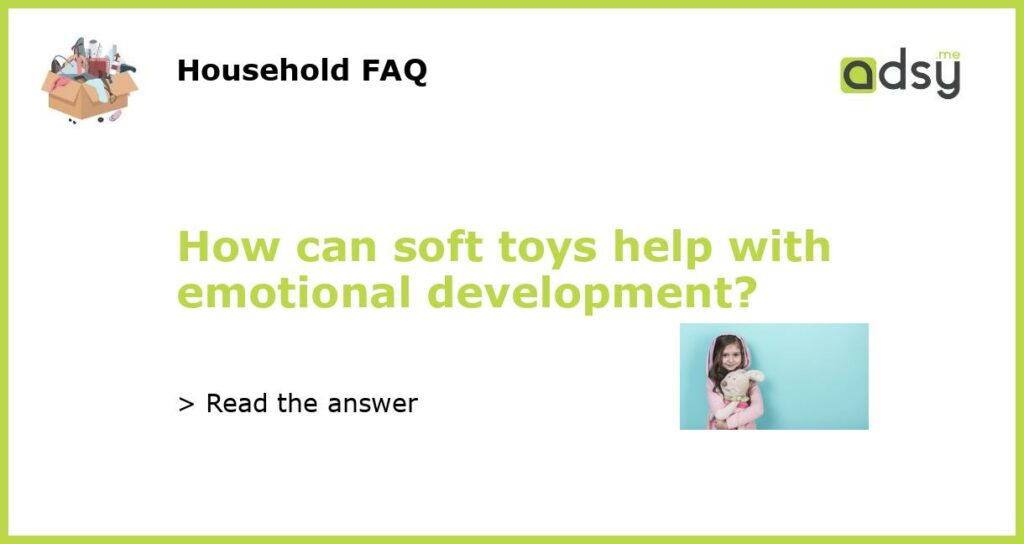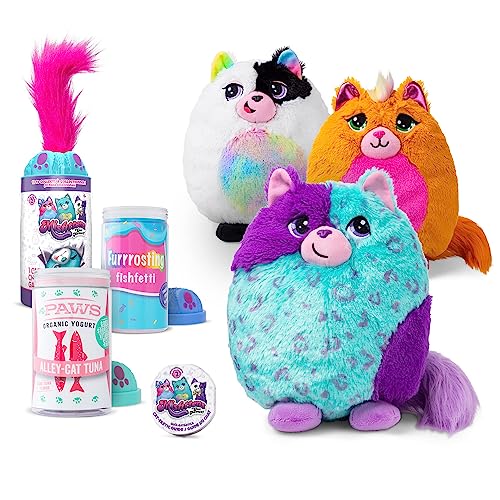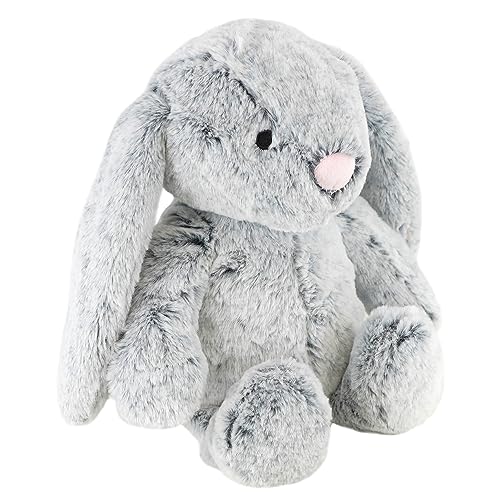Soft Toys and Emotional Development: The Connection Explained
Soft toys have been beloved by children for generations, providing comfort and companionship. However, their benefits extend far beyond simply being cuddly playthings. Soft toys play a crucial role in emotional development, helping children navigate and understand their emotions. In this article, we explore the ways in which soft toys can impact emotional development.
Fostering Comfort and Security
Soft toys have a unique ability to provide comfort and security to children. The soft texture, huggable nature, and familiarity of a stuffed animal can offer a sense of reassurance and solace in challenging or unfamiliar situations. Whether it’s a favorite teddy bear or a plush rabbit, these toys become a source of emotional support and companionship for children, allowing them to develop a sense of comfort and security that extends beyond the physical presence of the toy.
Soft toys can also be especially beneficial during times of separation anxiety. For example, when a child starts attending daycare or preschool, having a soft toy by their side can offer a familiar connection, making the transition smoother and less daunting. The presence of the toy can serve as a symbolic representation of their caregiver, providing comfort and easing the fear of separation.
Encouraging Empathy and Emotional Expression
Beyond providing comfort, soft toys can also help children develop empathy and emotional expression skills. Children often project their own emotions onto their soft toys, using them as a tool to explore and understand their feelings. By engaging in imaginative play scenarios with their toys, children can role-play different emotional situations, practice empathy, and develop a vocabulary to express their emotions.
For example, a child may create a scenario where their stuffed animal is feeling sad because it got lost in a game. Through this play, the child is not only processing their own feelings of sadness but also learning how to empathize with others who are experiencing similar emotions. This helps in building emotional intelligence and teaches children how to relate and understand the emotions of others.
Promoting Comfortable Communication
Soft toys can also act as a bridge for communication, especially for children who may struggle to express themselves verbally. Many children find it easier to confide in their soft toys, pouring out their thoughts and feelings without fear of judgment. This form of self-expression can lead to a stronger sense of self-awareness and emotional regulation, as children learn to identify and communicate their emotions.
In addition, soft toys can be helpful in therapy settings, where they are often used as a communication tool between the therapist and the child. The presence of the toy creates a safe and non-threatening environment, enabling children to express their emotions and experiences more freely.
Supporting Social and Emotional Learning
Soft toys can support social and emotional learning by providing opportunities for pretend play, problem-solving, and developing coping strategies. Through imaginative play with their soft toys, children can act out different social scenarios and explore various emotional responses. This helps them develop problem-solving skills, empathy, and an understanding of how their actions and emotions can impact others.
Soft toys can also act as a source of comfort during times of stress or sadness. This type of emotional support can teach children healthy coping strategies and resilience, as they learn to seek comfort and manage their emotions in a safe and constructive manner.
In conclusion
Soft toys offer much more than just playtime companionship. They play a vital role in emotional development, providing comfort, fostering empathy, supporting communication, and enhancing social and emotional learning. By understanding and harnessing the power of soft toys, parents, educators, and caregivers can help children navigate the complexities of their emotions and develop essential skills to thrive emotionally.






